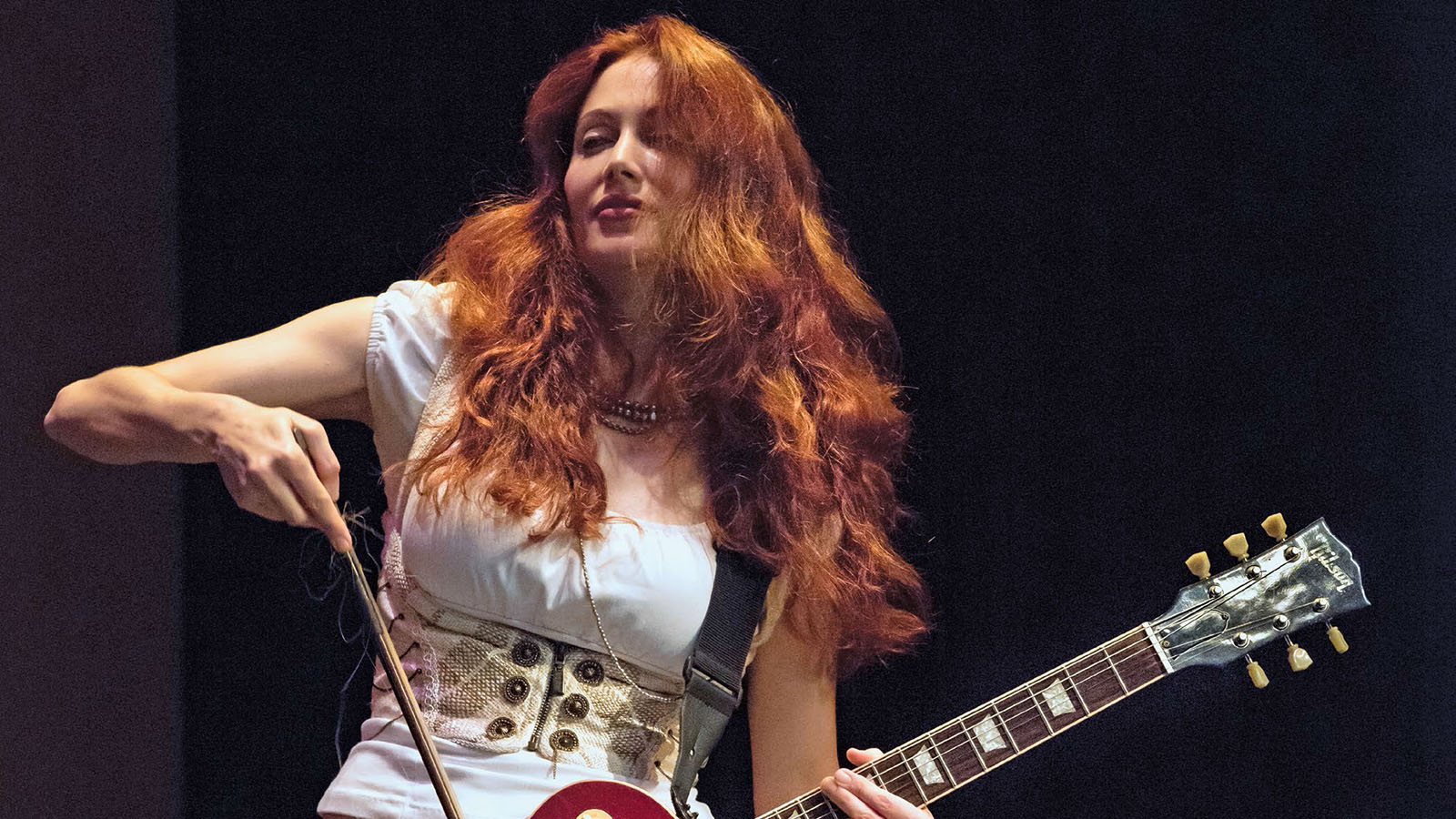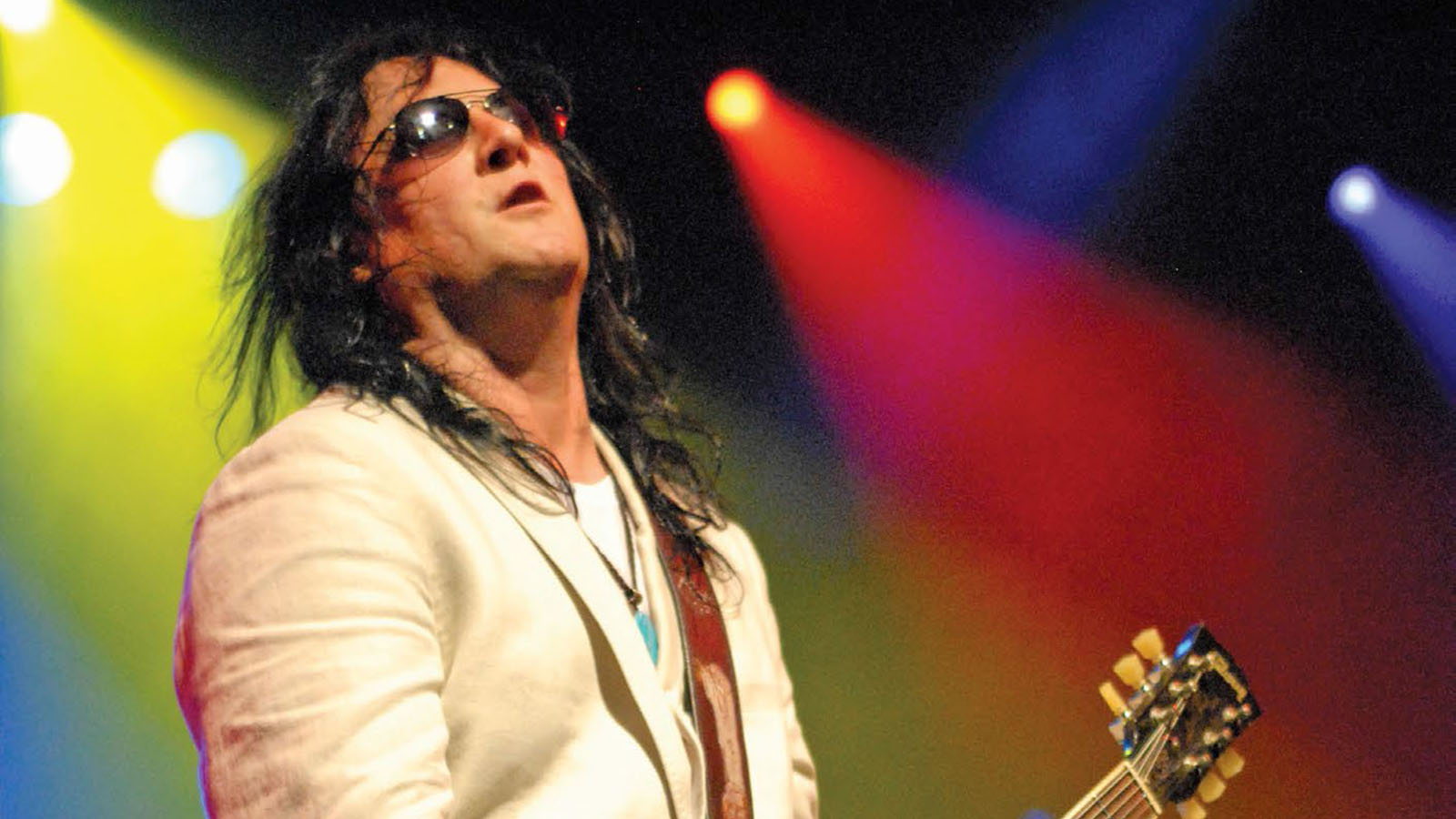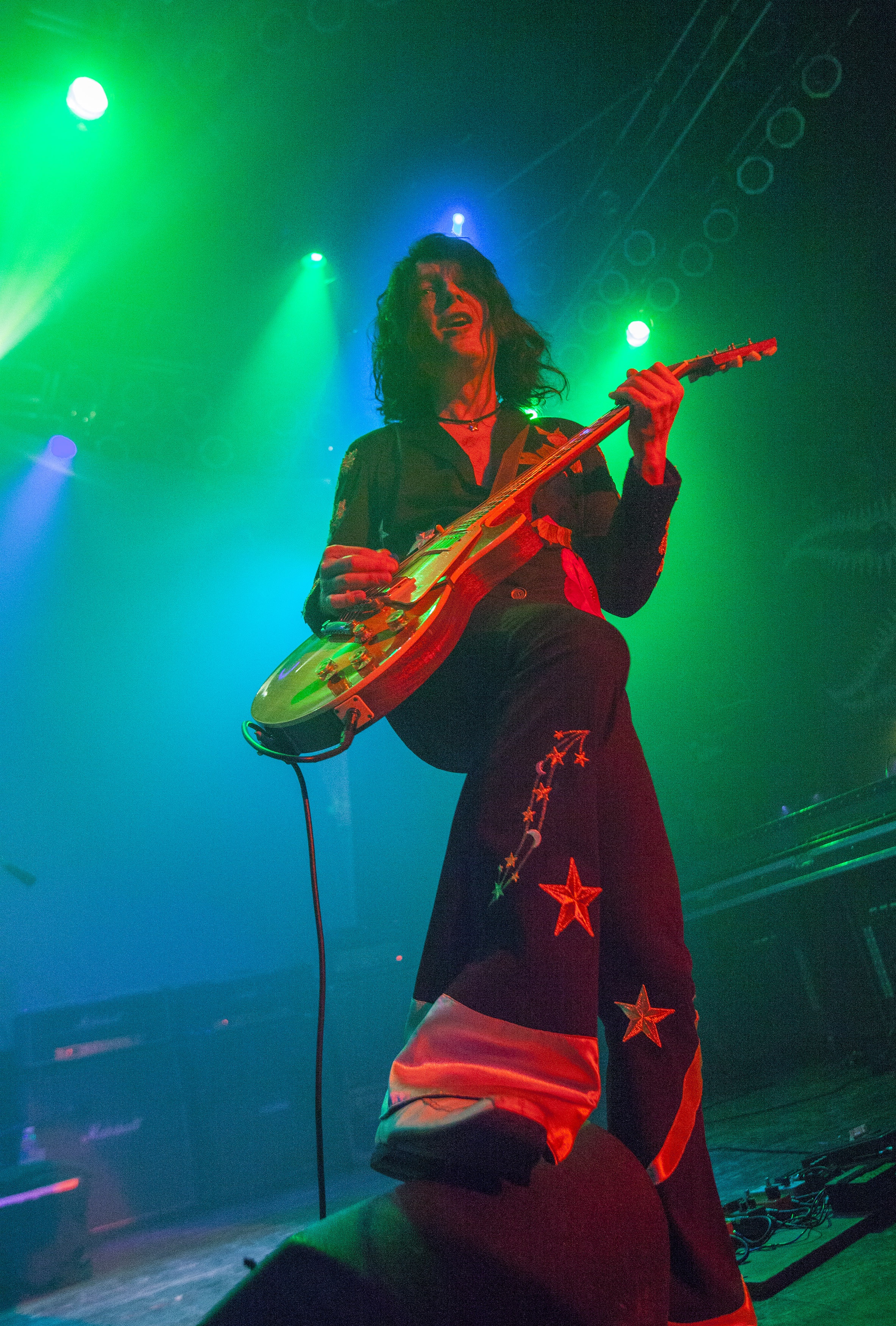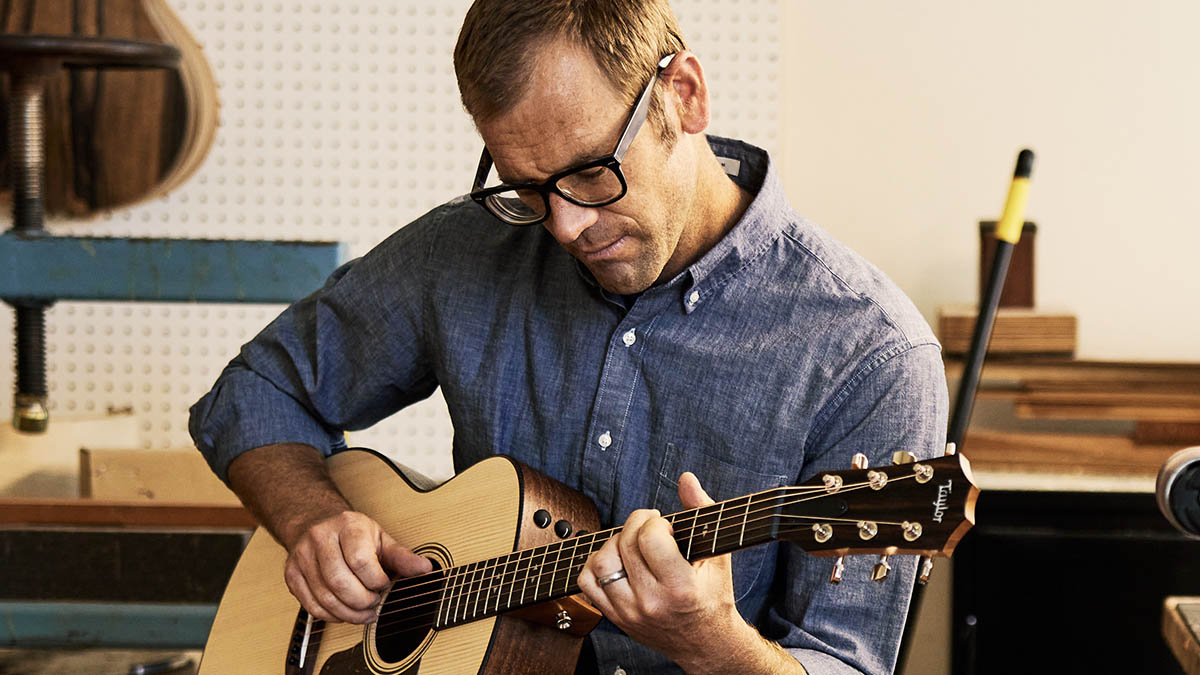
On December 10, 2007, the three surviving members of Led Zeppelin — Jimmy Page, Robert Plant and John Paul Jones — along with the late John Bonham’s son, Jason, reunited at London’s O2 Arena to play their first full set in 28 years. To say that the stakes were high would be an absurd understatement, but from all accounts, the weeks of rehearsal that went into the presentation paid off: The band exploded on stage with precision and fire, laying to waste the memories of their two wobbly previous reunions (at Live Aid in 1985 and at the Atlantic Records 40th-anniversary concert in 1988).
Barring any dramatic turn of events, the O2 gig could very well be Zeppelin’s live swan song. Although Page and Jones have expressed interest in touring, Plant has remained a staunch hold-out. For fans hankering to witness anything close to Zeppelin in the flesh, there are Plant’s live shows — he sprinkles his sets with a handful of his former band’s numbers — and there’s also Jason Bonham’s Led Zeppelin Evening, a live homage to his father’s band that he began touring with in 2010.
Zep fans do have other choices, however — thousands of them, in fact — in the plethora of Led Zeppelin tribute bands that have operated since the original group called it quits in 1980. As it is with outfits that cover the Beatles or Kiss, these groups invariably go by song titles — there’s No Quarter, Black Dog, the Song Remains the Same, etc. — and while there have been some gimmick presentations (most notably Dread Zeppelin, in which the band’s songs are performed reggae style and sung by a 300-pound Las Vegas Elvis impersonator), for the most part, Zep tribute acts aim for astonishing verisimilitude, with members cast not only for their musical ability but also their resemblance to their heroes.
“It sounds so cocky to say that your band is the best, but I will say that I like what we do,” says guitarist Andy Urban, the “Jimmy Page” of the New York-based Kashmir. “We do a very authentic live Led Zeppelin show, and we try to play the roles of the individual members. You’re probably never going to see the real Led Zeppelin again, but if you come to a Kashmir show, you’re going to see something pretty close.”
Paul Kamp, who portrays Page in the Chicago-based Led Zeppelin 2, admits that some fans are skeptical when they come to see his band — and he gets it, too. “People are very precious when it comes to Zeppelin,” he says. “Hell, I’m precious when it comes to them. I love Zeppelin more than I can say. So I know that fans are probably thinking, ‘There’s no way these guys can pull this off.’ It’s natural. But after the show they always tell me, ‘Wow, you guys are amazing. You look like Zeppelin, you sound like them — I’m knocked out!’”
Next to Lez Zeppelin, the San Francisco-based Zepparella is the most-famous all-female Zeppelin tribute band around today. But guitarist Gretchen Menn, who channels Page in the group, downplays the notion that the whole “chicks playing dudes” thing is a shtick. “For a second, people think it’s a joke or something, but then they hear us and that goes right away,” she says. “I don’t ever say we’re the ‘best’ Zeppelin tribute band, but I do think we try to honor the group with real sincerity.”
“We do have the ‘Zeppelin look,’ but I don’t try to be an exact replica of Jimmy Page,” she continues. “For instance, there’s my stage movements. I’m aware that I’m a woman, so there’s certain things Jimmy did that I just won’t touch — it just doesn’t feel natural. I’m more about spirit. I try to pay homage to him in a way that feels genuine to me. When I’m in the zone, I feel like I’m being the part of me that loves Led Zeppelin and worships Jimmy Page. And that’s awesome.”
All the latest guitar news, interviews, lessons, reviews, deals and more, direct to your inbox!
Which Zeppelin album or song was the one that started it all for you?
GRETCHEN MENN: One of my friends in eighth grade was obsessed with “Stairway to Heaven.” She played it for me, and honestly, I was like, “Eh.” It got cooler as it went along, and eventually I came to love it. But when I heard “When the Levee Breaks,” I got goosebumps. That just nailed me on Zeppelin.
ANDY URBAN: “How Many More Times.” I was fascinated by Jimmy’s use of the violin bow. I got a Les Paul Standard and dove right in. I went right for Zeppelin’s first album and Led Zeppelin II, and I just followed along from there.
PAUL KAMP: I dug the first album. One of my cousins had it in his record collection, and the minute I heard “Good Times Bad Times,” I was like, “Wow, this is good stuff.” And then I found out that it was all good stuff! [laughs]
What was the first Zeppelin song you mastered on the guitar?
MENN: “Mastered” is a strong word. Can you ever really master a song? I would say “The Rover” was the first one I really sat down and learned. I kind of learned “Black Dog,” but I mostly got the riff. “The Rover” was the one that I poured over.
KAMP: When I was pretty young, I learned how to play “That’s the Way” and “Going to California.” And then I learned “Bron-Yr-Aur,” the acoustic instrumental on Physical Graffiti. I figured it out note for note. I even played it at my wedding, when my wife walked down the aisle.
URBAN: Same song I mentioned before — “How Many More Times.” That was such a biggie for me.
Were you in any other tribute bands before these?
MENN: I used to be in an AC/DC tribute band called AC/DShe — that’s a pretty good name.
URBAN: I was in an AC/DC tribute band, too. I played Angus. That was much easier — I brought an SG and a Marshall amp. For this gig I have 15 guitars, and I usually travel with eight.
KAMP: Funnily enough, this group started out as a Black Sabbath cover band. We played as them for a few Halloweens, and then one year we thought, “Nothing against Black Sabbath, but Zeppelin just has a lot more dynamics.” So we went with Zep.
What special considerations are there for forming a Zeppelin tribute band? How do you pick each member?
MENN: It’s like looking for a needle in a haystack. Not only do you have to find somebody who is totally committed to their instrument, but you also have to find somebody who is committed to Led Zeppelin. Anybody who hasn’t played their music doesn’t have an appreciation for the level of nuance and unpredictability it can provide.
KAMP: I would honestly say that playing well is our main criteria. Looking the part does come into play. But mainly, you have to be a great player. All of our guys have jobs and do other things. One of the biggest considerations is being able to manage your schedule and being ready to travel when we need to.
URBAN: First off, you have to have a solid drummer and bass player. Our bassist also plays keyboards and mandolin. Then you need a singer who can sing and look like Robert Plant. And, I guess, you need a guy like me — somebody who has Jimmy’s whole thing. But you also need people who can set their egos aside. Our fans aren’t there to see Andy Urban; they’re there to see Andy Urban’s representation of Jimmy Page.

How much research did you do when it comes to guitars and gear?
URBAN: I’m a Jimmy Page and guitar nut. When I got the gig, I read every Guitar World and Guitar Player magazine to do my research. I had a Les Paul, and over time I added a Danelectro and a double neck. One of the coolest parts about this gig was learning how to play a theremin. I had to start out with “Mary Had a Little Lamb” before I could try Jimmy’s stuff.
MENN: I knew I needed to use a Les Paul, and you didn’t really have to twist my arm to get one. In terms of other stuff, I do have an old Marshall, and that was my main amp for a long time, but now I have a Two-Rock that sounds exactly the way it should for this gig. I’ve got an old TubePlex tape echo, but it’s huge. We load our own gear, and I’m not going to subject that to the rigors of the road.
KAMP: I’ve got the Les Paul, the double-neck SG and the Danelectro. Putting together gear has been a slow process. I’ve learned how to tweak Marshall heads to give them more of a vintage sound. I got really lucky: A fan sent me a Telecaster body like Page had back in the day — it was painted like a dragon or something. I put it together with a neck, and it sounds great.

Are there any Zeppelin songs your bands just can’t pull off live?
KAMP: There’s a lot of songs that they didn’t play. Among the harder ones, we did figure out a way to do “When the Levee Breaks.” There are definitely two different guitar tracks running through that one. I learned how to fret and play with a slide — it’s pretty hard. If there is song that I don’t think we play very well it’s “Fool in the Rain,” and for some reason, everybody requests that one. [laughs] We’ve never done “All of My Love,” either.
URBAN: We stay away from songs that Zeppelin never played live. Plus, there’s some things that have a lot of orchestration on them, so we don’t go for them. Other than that, we do most of the catalog. There’s so many songs in our repertoire. No show is ever alike.
MENN: There are certain songs that are tricky because of guitar changes and tunings. We did “Dancing Days” for a while, but we retired it because I had to have a slide on my finger the entire time. I would love to play “The Wanton Song,” but I think it’s a little obscure for most audiences.
KAMP: We’ve always played the deepest of the deep cuts. We do things like “In the Light” — I don’t know how many Zeppelin cover bands do that one. Some things we play true to the studio versions, but the highlights of our live show are when we’re flying by the seat of our pants on “Dazed and Confused” or “Achilles’ Last Stand.”
Overall, which song gets the best crowd response?
KAMP: You know the answer: “Stairway to Heaven.” [laughs] C’mon, that’s a no-brainer! That’s what a lot of people come to hear. But we do it earlier in our show, and then we do an acoustic set. After that, we bust into longer numbers; we kind of do an improv thing. That’s when we really connect with the audience.
MENN: Funnily enough, we don’t do “Stairway to Heaven.” We leave that one sacred, so we won’t play it. I’m a little biased, but I think “Dazed and Confused” gets the best response. As a guitarist, I just love playing that one. It’s got everything, and our version can run as long as 20 minutes. “Moby Dick,” too. Our drummer goes nuts on it, and the crowd just freaks out.
URBAN: “Kashmir” is a huge one, but we usually save that till last. We have a laser show, so we go crazy with that when we play “Kashmir.” The crowd loves it.
Have you ever checked out the competition?
MENN: Not really. Not because I haven’t wanted to, but it’s hard when you’re playing your own gigs and you’re traveling. I’m never in the same city as the other bands. I’m sure there’s some great ones.
URBAN: I would like to, but I’m too busy. I play 40 weekends a year, so it’s hard to get out to really see all the bands.
KAMP: I went to see Get the Led Out not too long ago, and I enjoyed them. The way they do it is so different from what we do. They play the studio versions more, with different overdub parts and everything. I liked them.
Are there any downsides to being in a Led Zeppelin tribute band?
KAMP: Mostly no. I love being able to do this, and I really appreciate how well we do. To play Jimmy Page in a Led Zeppelin tribute band that sells a lot of tickets and gets to play in big venues — it’s incredible. The only downside is traveling, being away from my wife and kids. There are times when I’d like to play in a blues trio or something, just loose and jam. But overall, I’m pretty happy doing this. I get to play great music, and people appreciate it.
URBAN: I can’t see any downsides. I don’t have a huge ego, and I can admit I’m not a great songwriter. It’s an honor to do what I do. Jimmy Page is the best guitarist ever, and he wrote the best songs. It’s a thrill to play his music in front of people. Zeppelin isn’t getting back together, so we’re out there representing them.
MENN: You know, you pick up a stick, you get both ends. Nothing is uniformly good or bad. It’s so terrible to complain about something that’s such an inherently good thing. It’s funny sometimes: We mostly have fans who are appreciative of what we do — they can’t see Zeppelin, so they come to see us. Once in a while, somebody says, “How dare you recreate somebody else’s music!” Which is weird. Did people say that to classical musicians playing Bach? I don’t think so, so why should Zeppelin be any different? People want to experience this music live. They need it. We’re happy to give it to them.
![Zepparella [from left]: Gretchen Menn, Holly West, Clementine and Anna Kristina](https://cdn.mos.cms.futurecdn.net/eJoT9Ht6FDraBAVECKixdR.jpg)
MAX CRACE’S TRIBUTE
“Gretchen Menn and I have worked together a lot, and the Zepparella promo shoot was very relaxed. Clearly the studio was full of rabid Led Zeppelin fans, myself included, so when she grabbed a folding chair, said, “Hey, check this out” and struck the whiskey-chugging pose, it was instantly recognizable and we were all laughing about it. But then, very quickly, everyone got into the positions from that famous [Led Zeppelin] photograph, and I just moved a couple light booms and a table and then shot a few frames. The whole thing probably took 10 minutes and I just love the shot. Cheers to Neal Preston for being so brilliant and inspiring our tribute photo!” —Max Crace, maxcrace.com
Joe is a freelance journalist who has, over the past few decades, interviewed hundreds of guitarists for Guitar World, Guitar Player, MusicRadar and Classic Rock. He is also a former editor of Guitar World, contributing writer for Guitar Aficionado and VP of A&R for Island Records. He’s an enthusiastic guitarist, but he’s nowhere near the likes of the people he interviews. Surprisingly, his skills are more suited to the drums. If you need a drummer for your Beatles tribute band, look him up.

